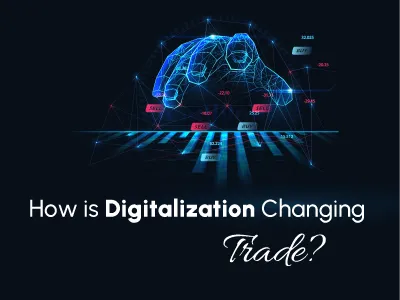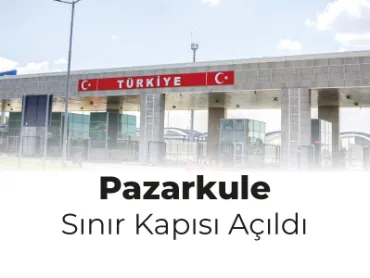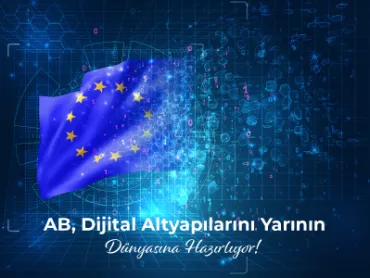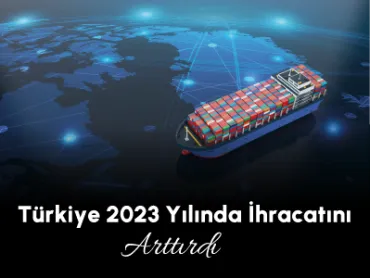
The time interval between industrial revolutions has gradually shortened with rapid technological developments. We are now on the threshold of the 5th Industrial Revolution, where smart devices and artificial intelligence design and develop next-generation production lines, new business models are implemented, extensive data analysis and information storage data grow, and technology affects every field. Humanoid artificial intelligence, blockchain, digital reality, robots, 5G and even 6G, autonomous vehicles, drones, smart homes, and cities stand out in this new era as part of the new technological transformation, and international trade is evolving more intensively into e-commerce.
Digitalization increases the scale, scope, speed, and accessibility of trade, enabling firms to offer their new products and services to more digitally connected customers worldwide. It also allows firms, especially smaller ones, to use new and innovative digital tools to overcome barriers to growth, streamline payments, make collaboration more possible and accessible, avoid investing in fixed assets through cloud-based services, and use alternative financing mechanisms such as crowdfunding.
Digitalization is also changing the way we trade goods. With urbanization reaching 56% worldwide, widespread use of the Internet (67.9% of the world's population), increased use of electronic shopping, especially during the pandemic, and the growth of online platforms, the number of small packages sold across international borders has also increased, leading to a growing share of e-commerce transactions in retail trade (around 21.5%). This raises several issues for policymakers, ranging from the physical management of e-commerce, including expedited shipping, to risk management (related to counterfeit goods or biosafety standards) and revenue implications associated with collecting taxes.
Digitalization in Customs and Foreign Trade Transactions
The three main customs and foreign trade transaction actors are customs administrations, customs brokers, and foreign trade companies. Therefore, it would be appropriate to focus on how the structure functioning between these three actors has evolved with digitalization.
With the efforts pioneered by the World Customs Organization (WCO), facilitations including the WCO SAFE Standards Framework, WCO data model, single window system, one-stop-shop, data banks, authorized Economic Operator (AEO), post-control applications; container security applications, modern scanning systems at customs gates and the use of nuclear material detectors, data processing and risk analysis based controls, while facilitating legal trade, efforts have been made to utilize technology at the highest level to combat illegal trade effectively.
Customs brokers, who perform duties in the processes related to customs procedures, examine the information obtained from the customer on whose behalf they act; obtain the necessary permits from the competent authorities; create the customs declaration and submit it to the customs administration; provide the necessary contacts with the customs authorities and meet their questions and requests, if any, on behalf of the customer they represent; accompanies the physical control; completes all processes on behalf of the client; in many cases, pays taxes and incurred costs on behalf of the client; ensures that the goods are withdrawn from customs; transmits reports on the process to the client; manages the process of providing and archiving documents according to the client's request. The digitalization efforts of customs brokers in these roughly described business processes aim to improve the end-to-end management of customs declaration processes by focusing on risk management, data integration, verification of data, especially value/tariff/origin/regime, filling out declarations, payment services, e-archive. In addition, the use of artificial intelligence and robots, especially in repetitive processes, is increasing in customs and foreign trade processes to reduce efficiency, accuracy, speed, stationery, and costs.
Digitalization for the Customs Brokerage Sector
Digitalization is essential for the customs and logistics sector and customs administrations. Customs brokerage companies need digital transformation to complete the customs and foreign trade transactions of the companies they serve with the least cost, rapid and error-free manner, and with the least risk. Even before the goods arrive in the country, IT applications play an essential role in the entire process, ranging from meeting the requirements in the context of technical regulations in pre-import permit processes to post-control processes after the goods are completed and delivered and in archiving.
IT technologies are utilized in the issuance of summary declarations, obtaining authorization documents, determination of GTIP, filling of declarations, follow-up of incentive certificates, and DİİB/Dİİİs.
Today, as in UGM, GTIP determination with artificial intelligence for some products, written/voice information and guidance with chatbot, automatic filling of customs declarations with data integration, measurement and follow-up of all customs clearance processes with KPIs, reporting of all data to companies through customer work portals and mobile applications with customer-specific solutions, utilization of robotic applications for entry into single window systems, monitoring of TIRs, containers and warehouses with vehicle tracking systems and sensors, The ability to quickly and systematically store millions of documents with digital archives, conducting risk analyses with artificial intelligence applications, accelerating processes and quickly detecting errors by using artificial intelligence in audits, performing declaration and document controls with the best performance with intelligent applications, processing data with the correct use of Big Data and preventing repetition, disseminating information, determining and improving employee productivity with artificial intelligence are some of the opportunities offered by digitalization to customs brokerage companies.
 Back
Back







